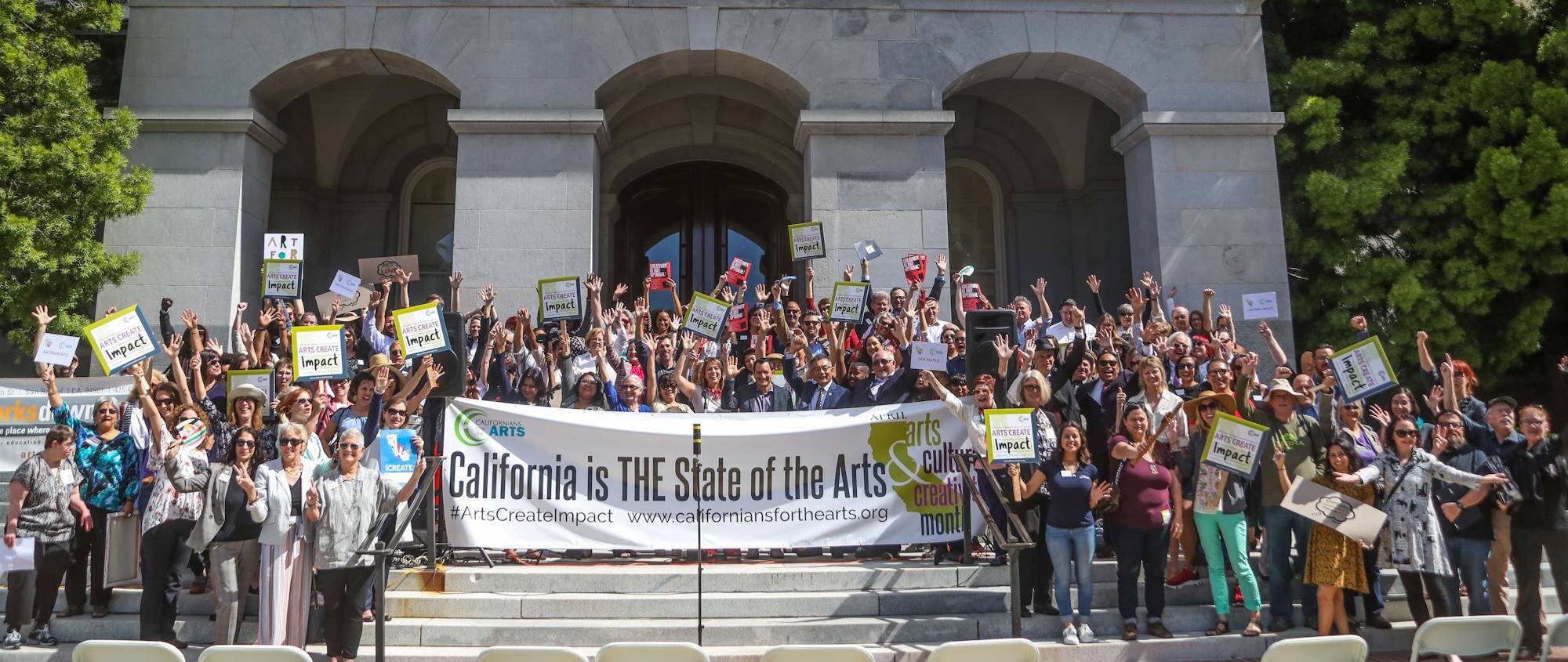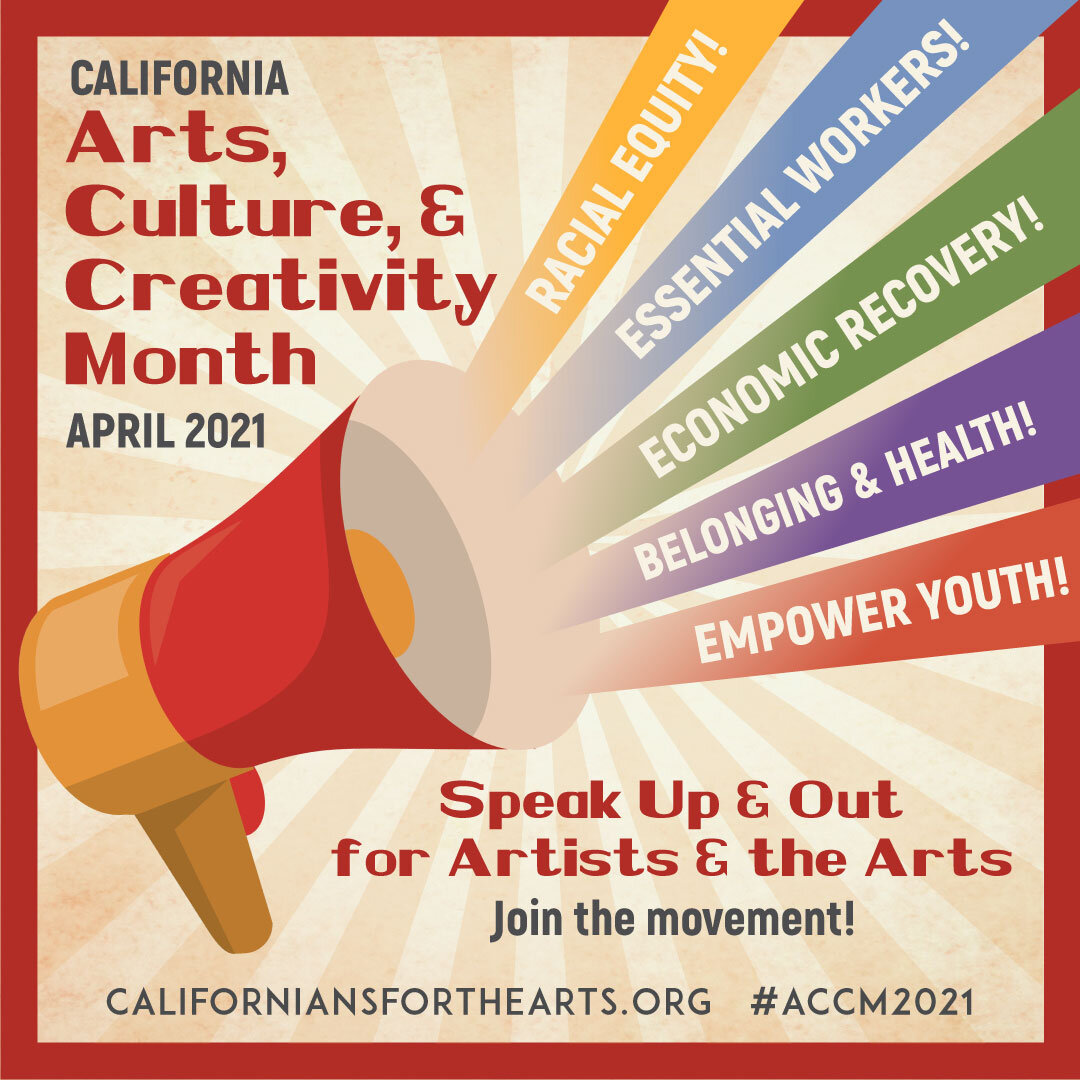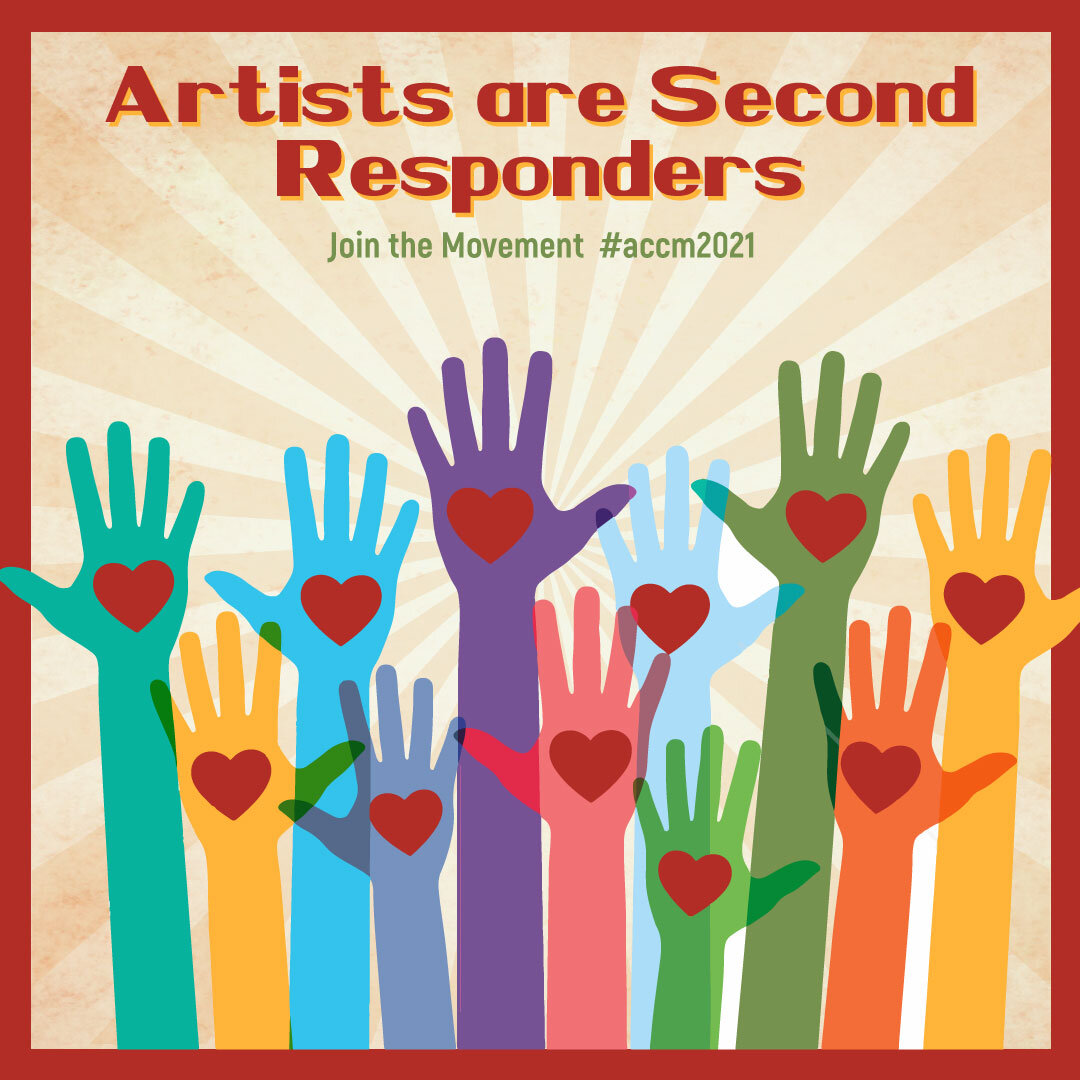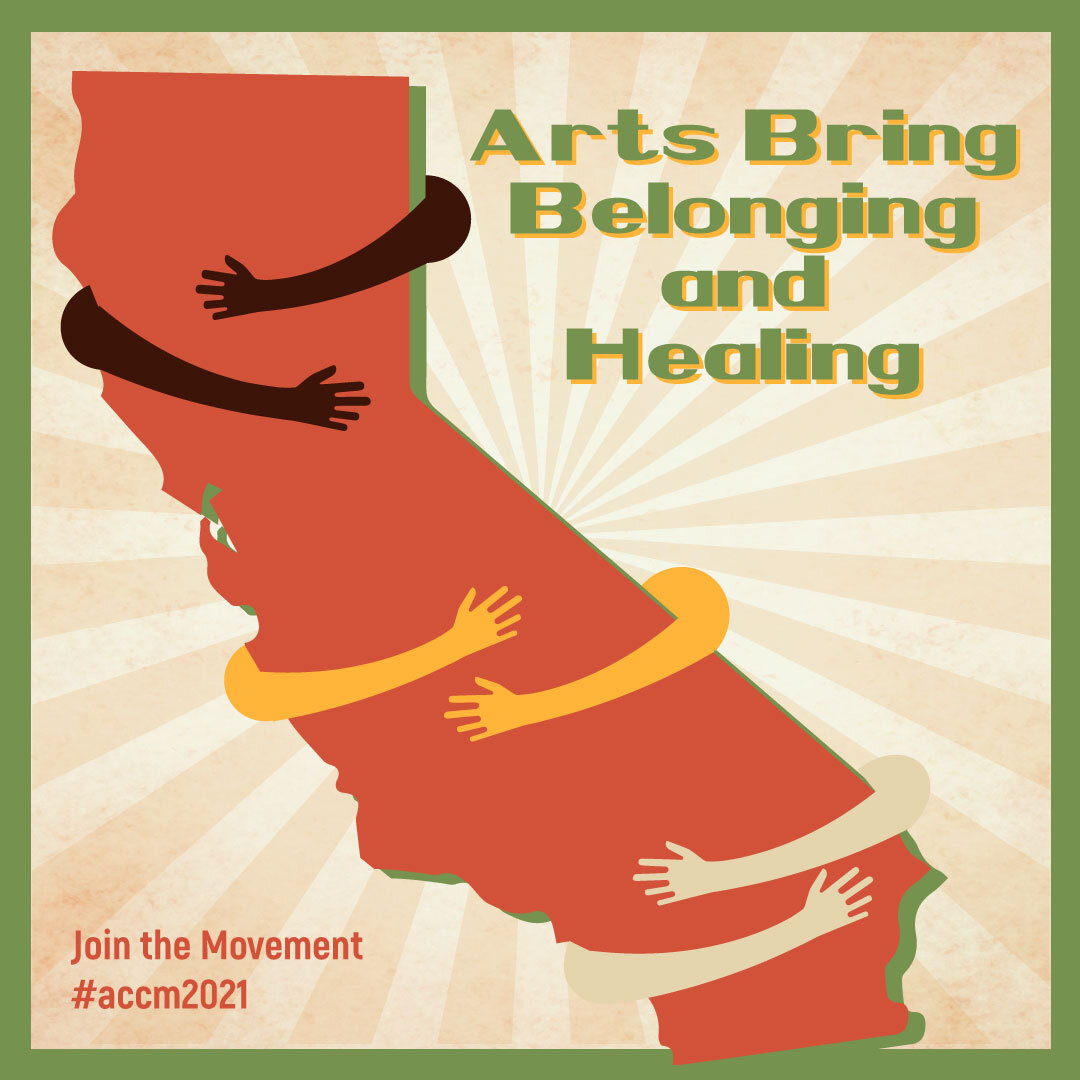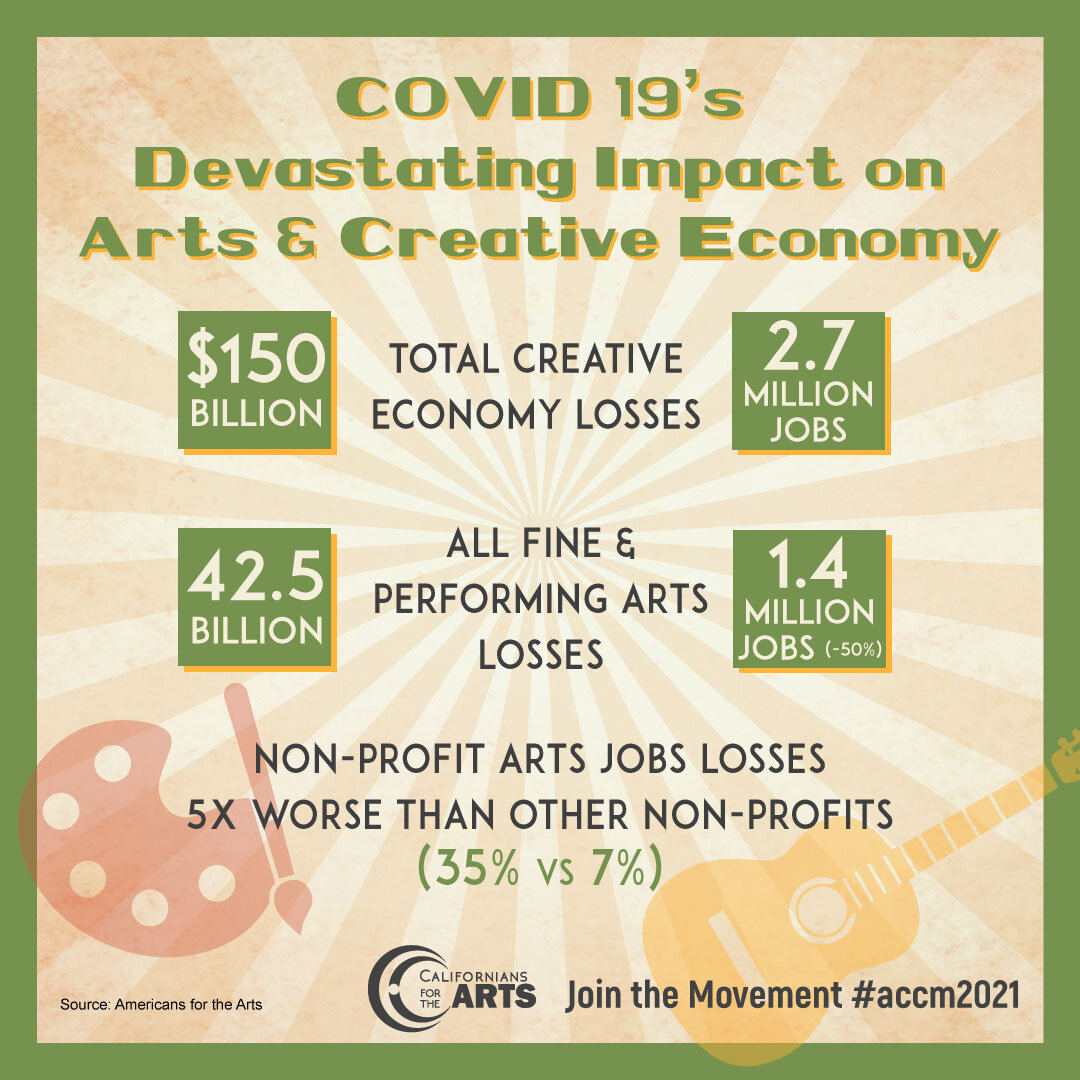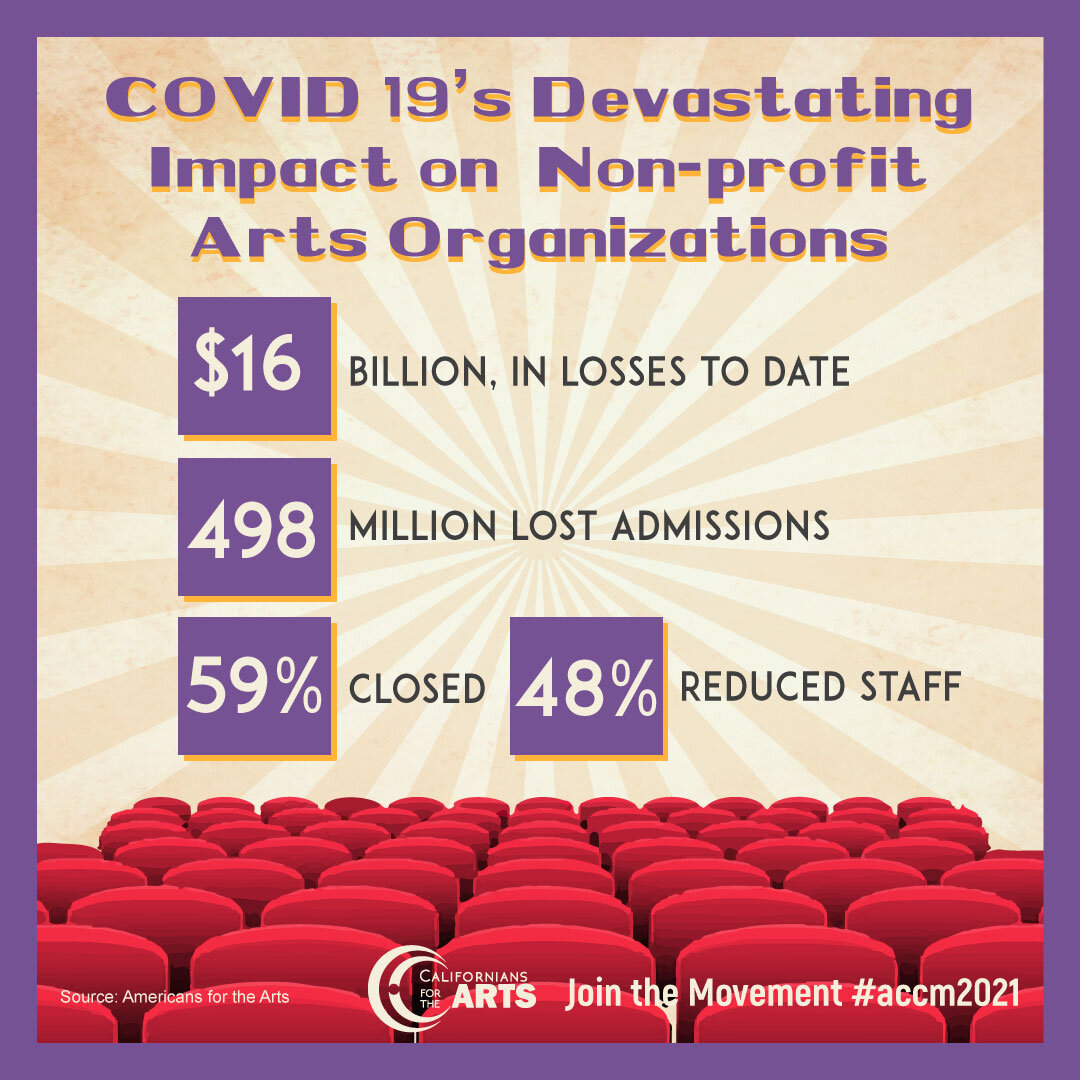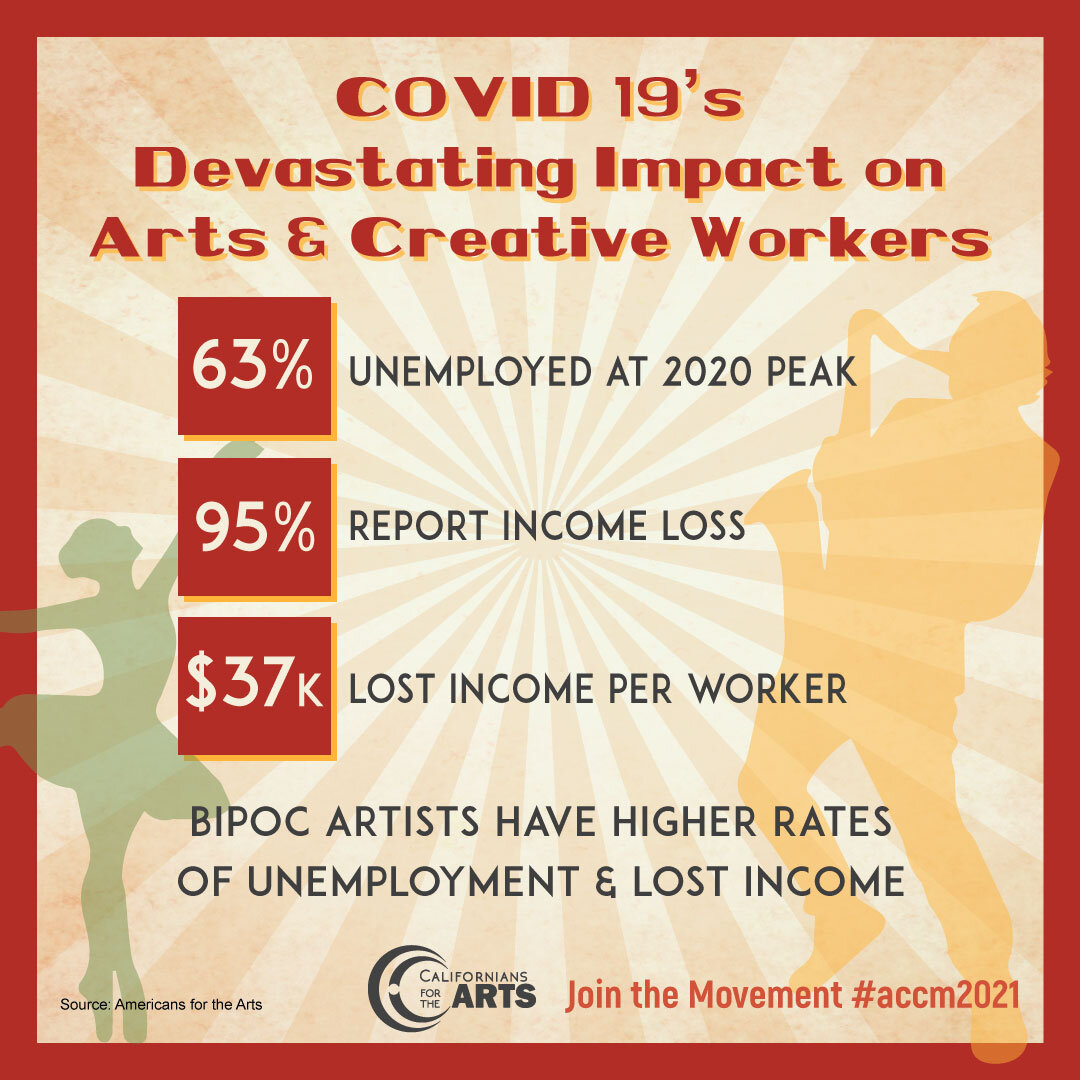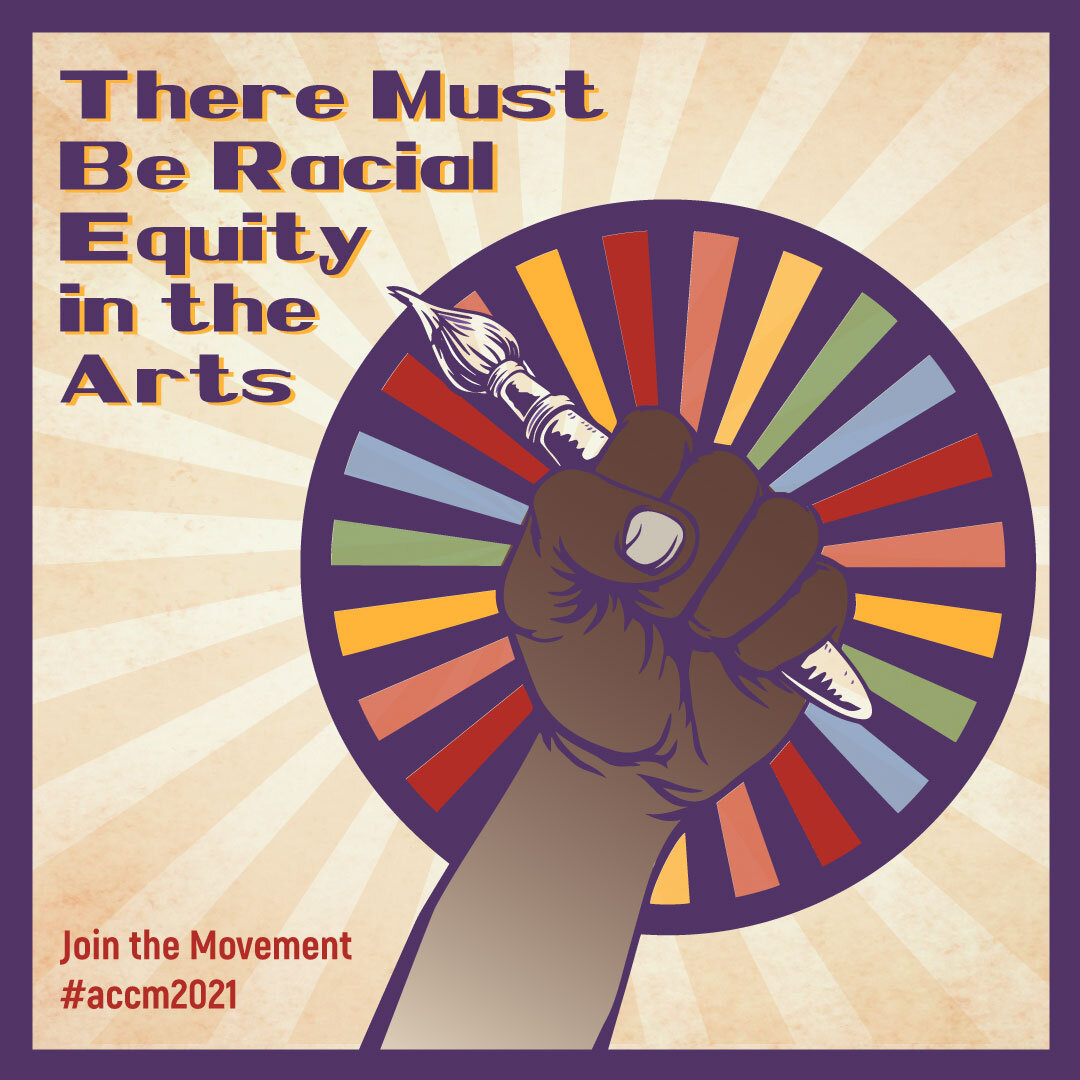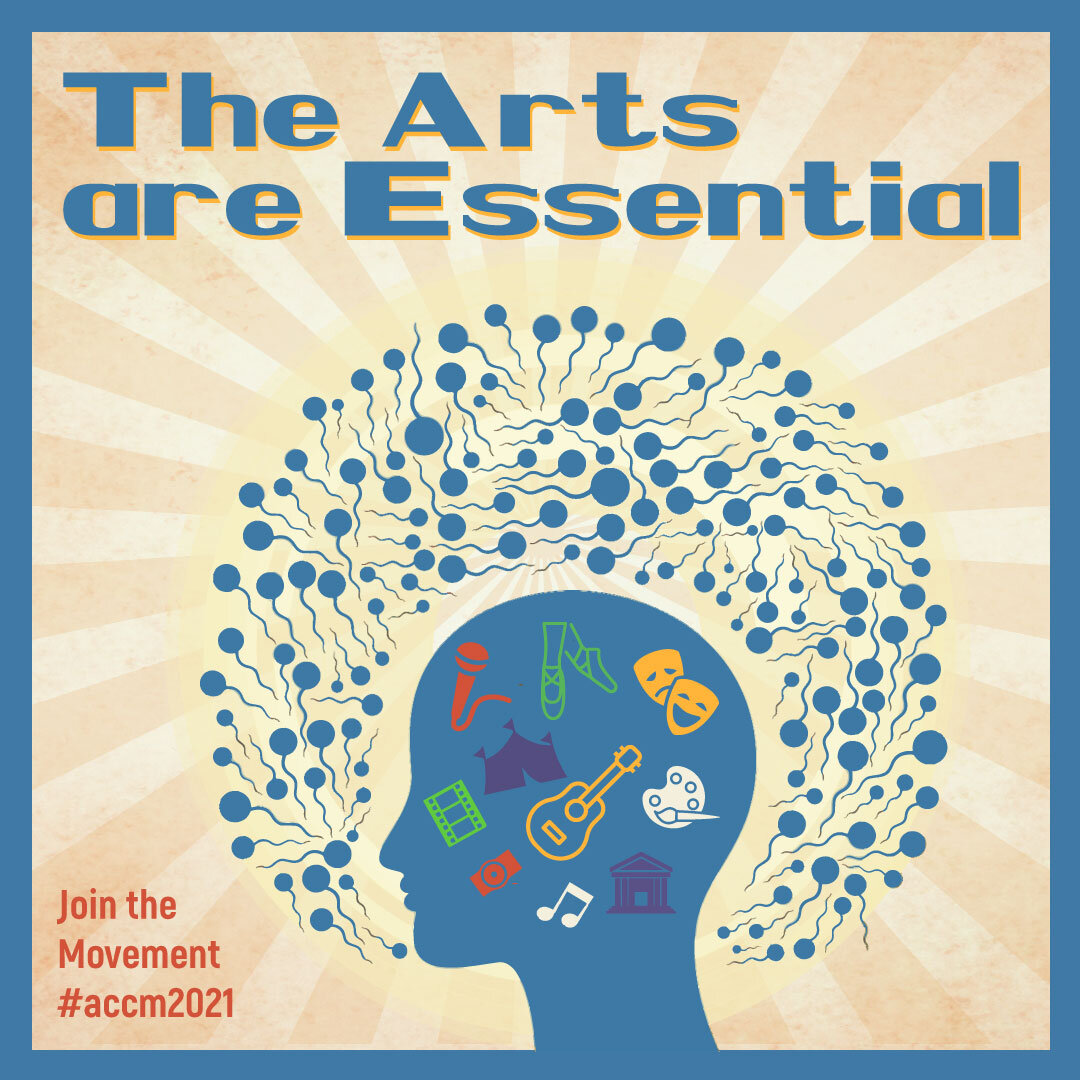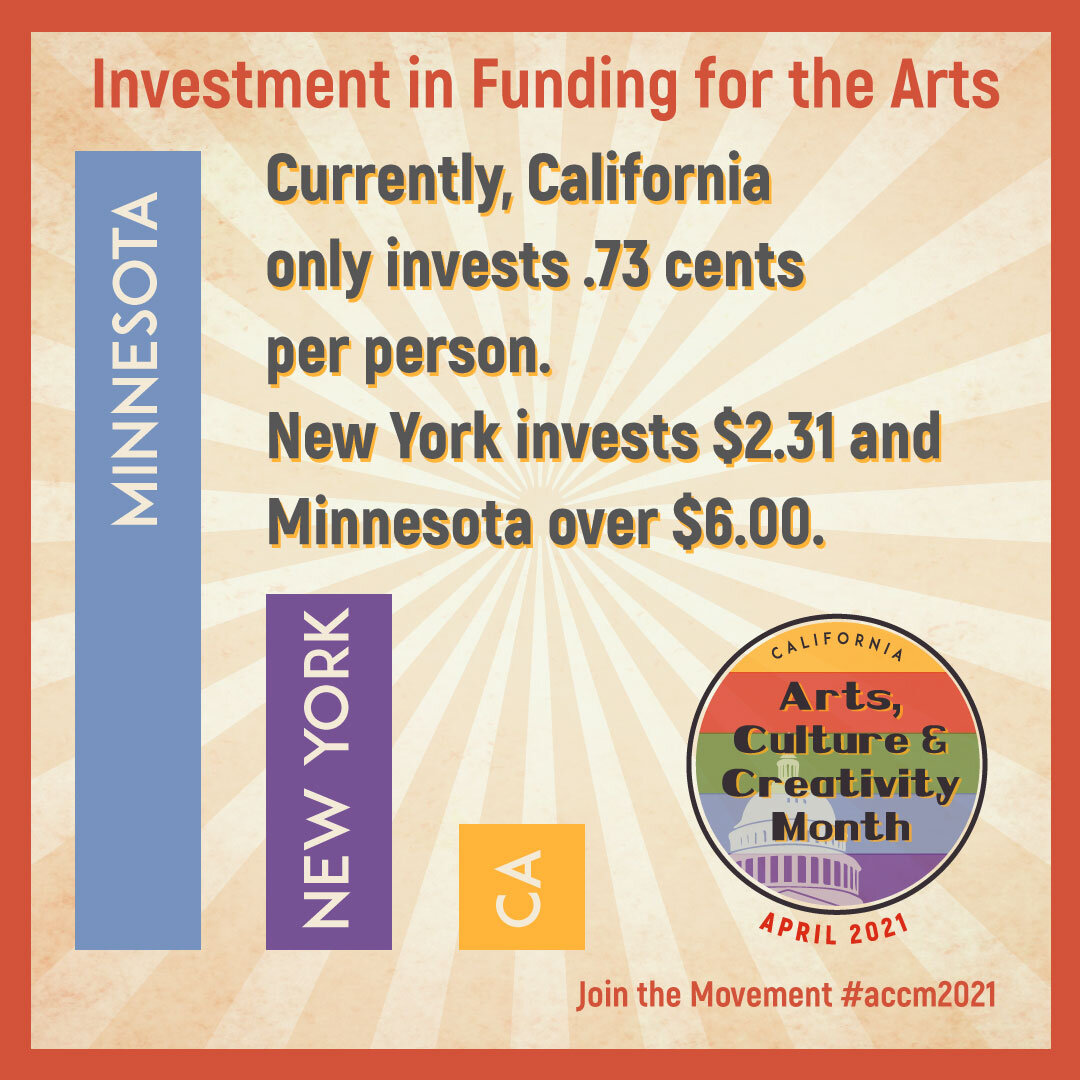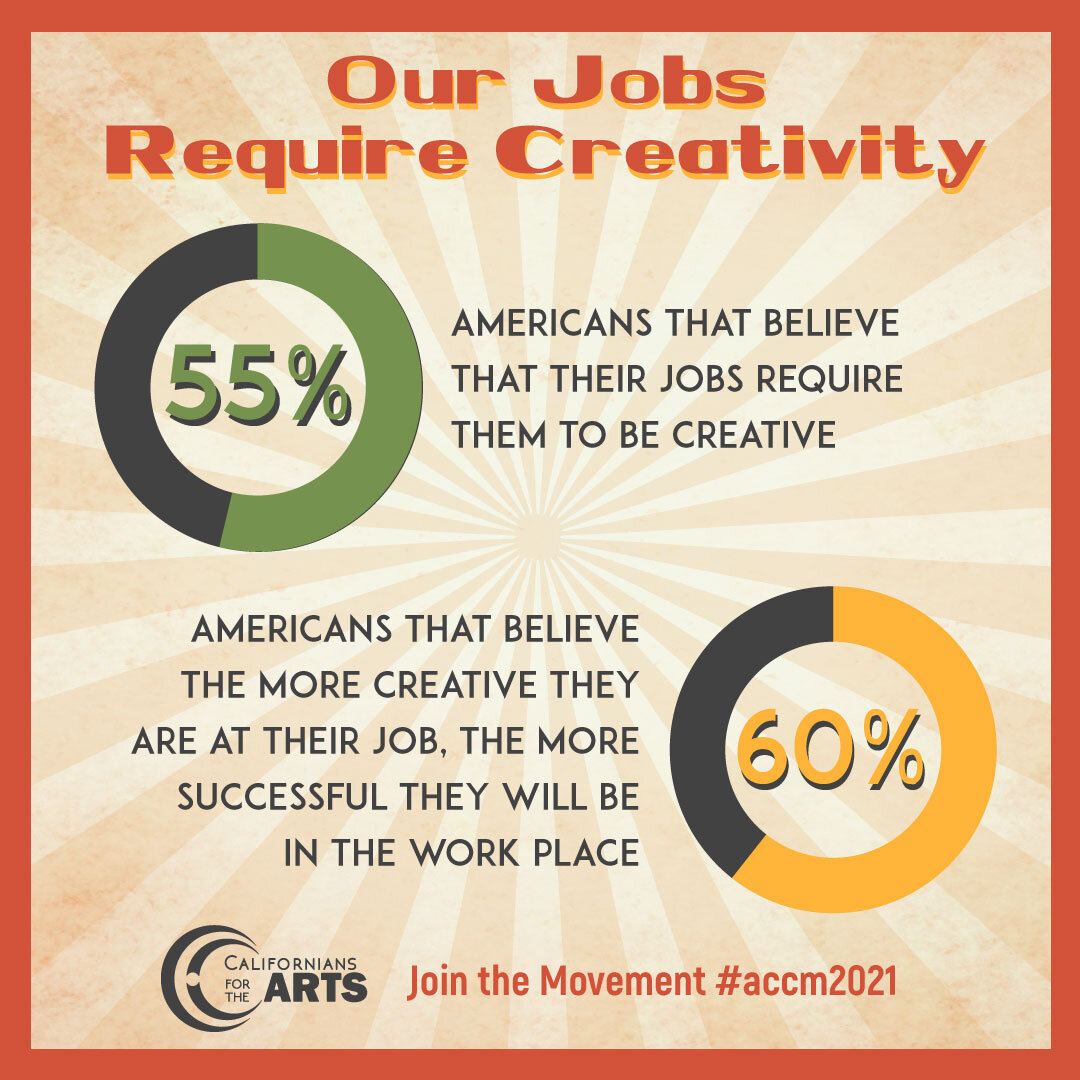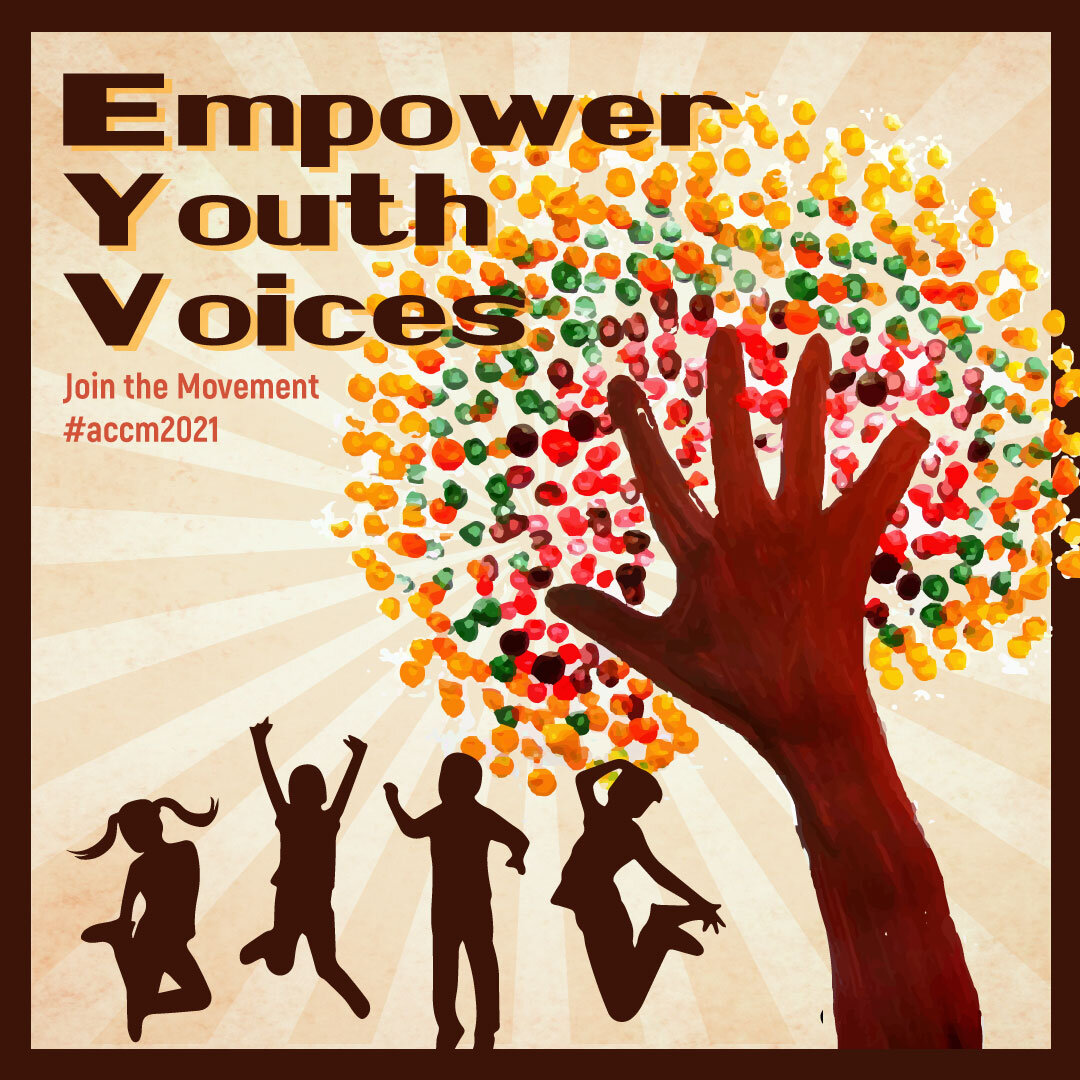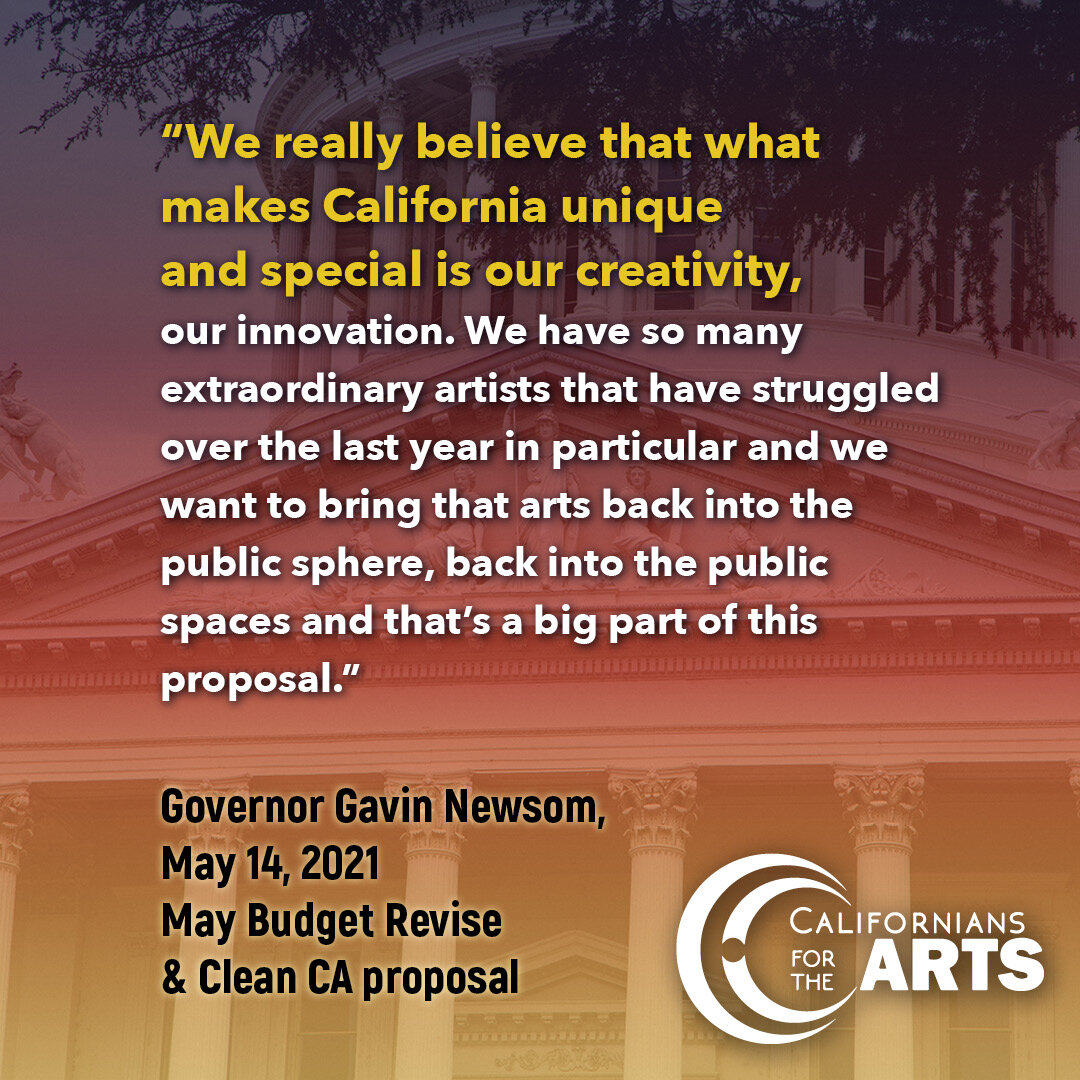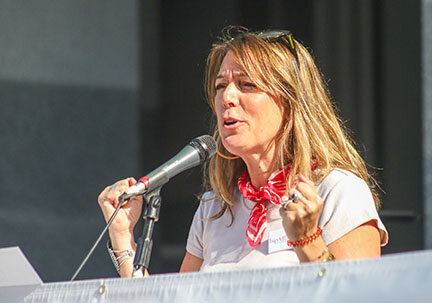Episode 66: Californians for the Arts
Listen Now | VOC Producers | Share | Transcript | Donate | Resources
Other Episodes: 1 | 2 | 3 | 4 | 5 | 6 | 7 | 8 | 9 | 10 | 11 | 12 | 13 | 14 | 15 | 16 | 17 | 18 | 19 | 20 | 21 | 22 | 23 | 24 | 25 | 26 | 27 | 28 | 29 | 30 | 31 | 32 | 33 | 34 | 35 | 36 | 37 | 38 | 39 | 40 | 41 | 42 | 43 | 44 | 45 | 46 | 47 | 48 | 49 | 50 | 51 | 52 | 53 | 54 | 55 | 56 | 57 | 58 | 59 | 60 | 61 | 62 | 63 | 64 | 65 | 66 | 67 | 68 | 69 | 70 | 71 | 72 | 73 | 74 | 75 | 76 | 77 | 78 | 79 | 80 | 81 | 82 | 83 | 84 | 85 | 86 | 87 | 88 | 89 | 90 | 91 | 92 | 93 | 94 | 95 | 96 | 97 | 98 | 99 | 100 | 101 | 102 | 103 | 104
Californians for the Arts Research, Resources, Advocacy
Stay updated on future episodes by subscribing to Voices of the Community on Apple Podcast, Spotify, and Google Podcasts, or where ever you listen to your podcasts
With the potential deficit in the pipeline of the creation of new creative workers, we could be facing a cultural depression in California - Julie Baker
In this episode our featured voice is the Executive Director of Californians for the Arts Julie Baker. The focus of this week’s show is on how the covid-19 pandemic is impacting our creative economy, its workforce, state legislation to support the recovery of the creative economy as well as how a historical San Francisco outdoor music festival is reopening within a pandemic.
Julie Baker
As the Executive Director of California’s statewide arts advocacy organizations Californians for the Arts and California Arts Advocates since 2018, Julie has worked to increase the legislative clout and visibility of the arts and culture communities by building coalition across the for and non-profit sectors of California’s creative industries, producing a month-long arts awareness and advocacy campaign every April, and fighting for resources and legislation to serve and protect artists and cultural workers. She serves as the California State Captain to Americans for the Arts' National Arts Action Summit and on the State Arts Action Network Council and as the co-chair of the Western Arts Advocacy network for WESTAF. She is on the board of California Heritage: Indigenous Research Project, a founding member of the Nevada County Relief Fund advisory council and was elected to the Nevada County school board in November of 2020.
Over the years, Julie has owned a fine arts gallery for emerging artists, co-founded Flow art fair — a satellite to Art Basel Miami Beach — opened a consulting firm Julie Baker Projects, and curated an annual music series at the Crocker Art Museum. Earlier in her career, she was President of her family’s arts marketing firm in New York City and worked at Christie’s Auction house before moving to California in 1998. Julie also served for eight years as the Executive Director of The Center for the Arts, a non-profit performing arts venue, and California WorldFest, an annual music and camping festival located in Grass Valley, CA. She is the recipient of the inaugural Peggy Levine Arts & Community Service Award from the Nevada County Arts Council.
Californians for the Arts
Californians for the Arts (CFTA) is the only comprehensive, multidisciplinary organization focused on advancing and building public awareness of the value and impact of arts, culture and creativity across California. With over 20,000 active subscribers and hundreds of members representing thousands of artists and arts and cultural organizations, we take on opportunities and challenges that no single organization or artist can represent alone. Moved by our deep conviction of the civic and personal value of the arts, our mission at Californians for the Arts is to ensure that the arts are accessible to all Californians; are an ongoing part of the public dialogue and to encourage Californians to care about the arts as a critical component of their own lives and the lives of their communities. We fight for arts resources and policies that benefit our members and all residents of California. Our work and support of civic engagement, arts education, racial and cultural equity and the creative economy, positively impacts every community across the state. With our partner organization, California Arts Advocates, we are able to influence legislation and appropriations through our lobbying team and efforts.
CFTA’s programs are designed to provide value and to educate and inspire the broader arts community to engage in advocacy and to move CFTA forward in its mission.
WE LISTEN. CFTA’s programs create opportunities for constituents to make their voices heard on issues impacting the arts. Our platforms for listening to voices across the arts include field surveys, regional conversations, affinity groups, and convenings between networks such as state and local partners as designated by the California Arts Council and County Supervisors and local county arts agencies. Listening to the field informs and guides CFTA’s development of future programs and advocacy priorities.
WE ENGAGE. Our programs engage the field on issues and legislation impacting the arts. We provide advocacy tools and training, and we mobilize the field to take action on specific bills and budget proposals. We also bring together CFTA members, arts professionals, elected officials, and the public through our annual Arts, Culture & Creativity Month (ACCM), during which CFTA produces a series of participatory arts advocacy events that highlight arts impact stories, facilitate meetings with legislators, and focus public attention on the importance arts, culture and the creative industries. Programs are the vehicle through which CFTA invites engagement in arts advocacy.
WE EDUCATE. Our programs connect arts professionals to information, resources, and training. We present professional development workshops about how new laws, state budgets, social movements, and current events impact the arts. Through its programs, CFTA shares information about its ongoing arts advocacy initiatives and educates arts professionals about topics that are timely, persistent, or otherwise of interest to the field.
CFTA program fall among the following categories:
Arts Advocacy: CFTA‘s primary network service is to educate all those that work in service to the arts industries to be effective arts advocates locally, statewide and nationally. We also educate public officials on the value and impact the arts create in our communities and our economy. We work to build public awareness and public support for arts funding and arts effectiveness in order to see policy action or change.
Communications: CFTA distributes weekly enewsletters (17,500 subscribers) which includes news from the field, grant opportunities, trending activities and best practices, legislative updates, action items and upcoming statewide arts and culture events. CFTA aggregates articles about issues that are relevant to the field on our social media platforms. We prepare "Action Alerts'' for legislation and budget news through our VoterVoice Platform which has a subscriber list of over 17,000 statewide advocates. We are a resource for the news media when it comes to public policy issues affecting the arts industries. Plus CFTA provides media tool kits and trainings available free of charge to help other organizations and individuals with their own communication efforts. Please see the work sample document of recent statewide and national level press examples. We are also invited to speak at a variety of convenings across the state and nationally as our advocacy work and campaigns such as “artists are second responders” and #ReStartArtsCA have become nationally recognized.
Mentorships: Every April, CFTA board members lead delegations to the Capitol and even did so virtually during the last two years. An outcome of this statewide initiative is to engage emerging advocacy leaders with board members serving as mentors.
Networking : Collectively, our board and staff attend hundreds of events including conferences and legislative hearings. Programs like the CFTA Regional Conversations convene nine different distinct regions in California every six months. This regional networking opportunity has helped to unify the needs within the specific communities and has fostered further collaborations.
Professional Development: CFTA conducts over a dozen free statewide advocacy trainings as well as multiple workshops and webinars regarding legislation that impacts the field. For example, in 2020, over 1000 registrants attended our webinar on AB5. We offer services to communities that are looking to build local advocacy initiatives but lack a regional advocacy group. Every April CFTA implements activities around Arts, Culture & Creativity Month (ACCM), including a social media messaging campaign; statewide engagement practices such as templated events and proclamations, advocacy days at the Capitol with legislative meetings, and a virtual convening including cross sector organizations, artists and culture makers seeing a record number of 700 participants in this virtual format.
CFTA’s work is rooted in Arts Advocacy. We consistently move the needle for deeper statewide investment in the Arts and Culture sector and we respond to community needs. COVID-19 had/has a great impact on our organization as so many arts and culture organizations and businesses were devastated by the pandemic. Instead of retreating, we advanced, and will continue to do so.
Here are examples of CFTA shifts and reactions to the pandemic to further reach the need of those that we serve:
-In April 2020, we were one of the first organizations to present a conference in a virtual format.
-We established a statewide Reopening Task Force of over 50 leaders in the field to be a unified voice in advocating for reopening guidelines for our sector.
-With the help of a third party consultant, we completed a statewide survey assessing the impact of COVID-19 on our sector in particular including both an organizational and individual artist perspective. This report has been quoted by numerous news outlets and was announced in tandem with the reputable Otis Report.
-Convening during this time was a need. We responded to this by implementing townhall type gatherings in a virtual format called Regional Conversations. Across the entire state, we convened 9 separate regions twice, once in the Summer of 2020 with 561 attendees and again in the Winter of 2021 with a total of 696 registrants.
-We worked to create a Media ToolKit for reopening the arts that was distributed widely. This tool allowed the look and messaging of the call to reopen the arts to be unified and coordinated.
-Our advocacy voice grew as ‘Artists as 2nd Responders’ entered a common vernacular. In fact, recently introduced by CA Senator Allen’s office, a state resolution was made recognizing “Artists as 2nd Responders.’
-The CA Office of Small Business Administration (CAL OSBA) identified CFTA as a lead resource and contracted with us to provide support to our sector for the CA Relief Grant Program.
-CFTA developed strong relationships within the Governor’s office of business (Go-Biz) as part of the reopening guidelines discussions and negotiations which resulted in Dee Dee Myers, Director of Go-Biz creating a video for Arts, Culture & Creativity Month and our Executive Director being invited to meetings with leaders from industries such as manufacturing, tourism and agriculture solidifying that arts are being seen as an essential industry.
- With our lobbying organization, California Arts Advocates (CAA) and others in the field we have helped to secure $50m for Cultural Institutions through the CA Relief Grant Program. The only industry to be specified in a special round in the Statewide small business and nonprofit relief program
- CAA has sponsored Senate Bill 628, authored by Senator Ben Allen, CA Creative Workforce Act of 2021. It has passed through the Senate and on its way to the Assembly.
- CAA supports several pieces of legislation including SB 805, a bill to establish payroll and paymaster services grants: employment grants for small nonprofit performing arts organizations.
- CAA in coalition with CA Assoc. of Museums and Nat’l Independent Venues Assoc (NIVA) CA have lobbied the legislature and Administration for a significant investment for the recovery of the arts, culture and creative industries and workforce. Send a letter in support here.
Donation/Volunteer
Become a member of Californians For The Arts and show your support to build a sustainable and vibrant California using arts, culture and creativity as the leading drivers for social change, economic prosperity and wellness. We cannot do this work without your support. We use our resources wisely to work on behalf of the entire arts community. It takes the financial support of people like you to make our network stronger.
Videos
To find out more about Californians for the Arts please check out our videos:
Subscribe to the Voices of the Community newsletter to stay updated on future episodes and issues that matter
“This is a sector that brings huge economic benefits to the State of California. Close to 8% of the gross state product of California is the creative industries we are ahead of agriculture and transportation, we’re a $230 billion industry in the state of California.”
Donate to Voices of the Community
We are fiscally sponsored by Intersection for the Arts, a 501(c)(3) nonprofit organization, which allows us to offer you tax deductions for your contributions. Please consider making a donation to help us provide future shows just like this one. If you want to send us a check, please make checks payable to Intersection for the Arts and write [Voices of the Community] in the memo line of your check. This ensures that you’ll receive an acknowledgement letter for tax purposes, and your donation will be available for our project.
1446 Market Street | San Francisco, CA 94102 | (415) 626-2787
This has been an Alien Boy Production.
All Rights Reserved ©2016-2021


